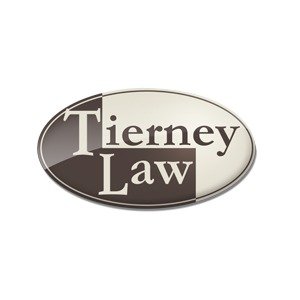Best Child Visitation Lawyers in Hobart
Share your needs with us, get contacted by law firms.
Free. Takes 2 min.
Free Guide to Hiring a Family Lawyer
List of the best lawyers in Hobart, Australia
About Child Visitation Law in Hobart, Australia
Child visitation, often referred to as parenting time, is an essential aspect of family law in Hobart, Australia. It is designed to ensure that children maintain meaningful relationships with both parents following a separation or divorce, as long as it is in the best interests of the child. In Hobart, the Family Law Act 1975 governs these matters, providing a framework for disputes related to child custody and visitation. The law aims to balance parental responsibilities while prioritizing the welfare and wellbeing of the child.
Why You May Need a Lawyer
A lawyer can be invaluable in situations where child visitation arrangements are contentious or complex, including:
- Disputes over visitation rights or schedules
- Concerns about child safety during visitation
- Modifications to existing visitation arrangements
- Enforcement of visitation orders
- Relocation disputes post-separation
- Need for formal mediation or negotiation
Legal representation helps ensure that the process is fair and in accordance with the law, protecting both the child’s best interests and your rights as a parent or guardian.
Local Laws Overview
In Hobart, child visitation is part of the broader child custody matters overseen by the Family Court of Australia. Key aspects include:
- Best Interests of the Child: The paramount consideration in any visitation case is the child’s best interests, considering factors like the child’s views, the relationship with each parent, and the overall family situation.
- Parental Responsibility: Generally, both parents share responsibilities unless the court decides otherwise due to safety concerns.
- Parenting Orders: If parents cannot agree on visitation, they may seek a parenting order from the court to formalize the arrangements.
- Mediation: Families are encouraged to use family dispute resolution services to resolve visitation disputes before going to court.
Frequently Asked Questions
What does "best interests of the child" mean under Australian law?
It refers to factors considered by the court to ensure a child's wellbeing, including the child's right to safety, the benefit of having a relationship with both parents, and the child's own wishes.
Can a parent refuse visitation during a disagreement?
Visitation should be maintained as per the court order. If changes are needed, it is best to seek legal advice to avoid breaching the order.
What happens if one parent wishes to relocate with the child?
The relocating parent must seek the other parent's consent or a court order. The court will consider how the move impacts the child's relationship with both parents.
Is mediation compulsory before going to court?
Yes, except in situations involving family violence or child abuse. Mediation is required to resolve disputes outside court to foster cooperative parenting.
How are visitation disputes resolved if parents cannot agree?
Parents may file an application for a parenting order. A judge will then decide based on the child's best interests.
Do grandparents have visitation rights?
Yes, grandparents can seek visitation rights, and the court may grant these if it serves the child's best interests.
How can a visitation order be enforced?
If a visitation order is not being followed, you can return to court to apply for enforcement, which may involve penalties for the non-compliant parent.
Is it possible to change a visitation order?
Yes, if circumstances change substantially, you can apply to the court to modify the order.
What should I do if I fear for my child's safety during visitation?
Notify the court immediately and seek legal assistance. The court can alter the visitation arrangement to ensure safety.
How long does it take to get a parenting order?
The timeframe varies, depending on the complexity of the case and court availability. Legal advice can provide a more precise estimation.
Additional Resources
For additional support and information regarding child visitation, consider the following resources:
- The Family Court of Australia
- Family Relationships Online
- Legal Aid Tasmania
- Relationships Australia
- Tasmanian Family Institute
Next Steps
If you need legal advice or assistance with child visitation matters, consider the following steps:
- Consult a Family Lawyer: Look for a lawyer who specializes in family law and child visitation.
- Gather Documentation: Compile relevant documents such as existing custody agreements, visitation schedules, and any communications with the other parent.
- Consider Mediation: Before heading to court, try engaging in mediation to reach an amicable resolution.
- Contact Legal Aid: If cost is a concern, explore options for financial assistance through Legal Aid Tasmania.
Lawzana helps you find the best lawyers and law firms in Hobart through a curated and pre-screened list of qualified legal professionals. Our platform offers rankings and detailed profiles of attorneys and law firms, allowing you to compare based on practice areas, including Child Visitation, experience, and client feedback.
Each profile includes a description of the firm's areas of practice, client reviews, team members and partners, year of establishment, spoken languages, office locations, contact information, social media presence, and any published articles or resources. Most firms on our platform speak English and are experienced in both local and international legal matters.
Get a quote from top-rated law firms in Hobart, Australia — quickly, securely, and without unnecessary hassle.
Disclaimer:
The information provided on this page is for general informational purposes only and does not constitute legal advice. While we strive to ensure the accuracy and relevance of the content, legal information may change over time, and interpretations of the law can vary. You should always consult with a qualified legal professional for advice specific to your situation.
We disclaim all liability for actions taken or not taken based on the content of this page. If you believe any information is incorrect or outdated, please contact us, and we will review and update it where appropriate.















